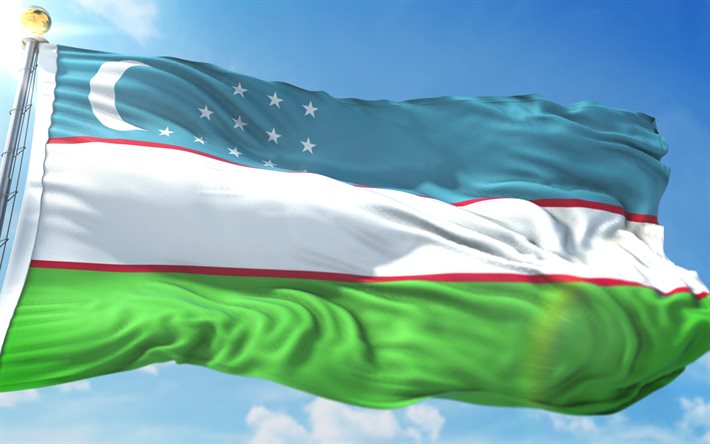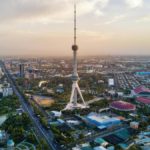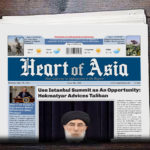A multiparty system has been established in the Republic of Uzbekistan, and is being developed in accordance with modern requirements, as a result of large-scale political, socio-economical and legal reforms that were gradually carried out in the process of independent statehood of nearly thirty years.
Speaking of multipartyism, “only if a multiparty system is established in the political system, can the state fully represent the interests of the people, ensure the supremacy of national interests, the interests of classes and social groups, and create a solid foundation for stability in society” – M. Duverge, a well-known french expert on Western partology.
As per the national and foreign experience, developed multiparty system, maturity and activitism of political parties and civic institutions, a high level of political and legal culture of citizens are important factors and conditions for the success of democratic reforms in society.
It should be noted political parties operating on the multiparty basis will be provided with conditions and opportunities for legal equal operations, to unite in blocs, the transition to constructive confrontation and the creation of a healthy environment of inter-party competition, the identification, systematization and protection of the interests of social groups.
As in all democratic countries, elections in the Republic of Uzbekistan are conducted in accordance with the universally recognized democratic standards on the basis of unity, equal, direct, alternative, open and transparent, multiparty ballot.
During the elections, political parties seek to win through their candidates. This creates a unique environment of competition and examination, and the final results reveal the realism of political parties in society. At the same time, each political party strives to effectively convey the goals and objectives expressed in its program to the people, in particular, to social groups aimed at self-support.
As of today, five political parties are operating on the basis of multiparty system in the New Uzbekistan- the People’s Democratic Party of Uzbekistan (1991), the Social Democratic Party of Uzbekistan “Adolat” (1995), the Democratic Party of Uzbekistan “Milliy Tiklanish” (1995), the Movement of Entrepreneurs and Businessmen – the Liberal Democratic Party of Uzbekistan (2003) and the Ecological Party of Uzbekistan (2019).
It is well known that each party, as a political power, seeks to protect the interests of certain sectors of society, thereby expanding its status and influence by forming and further expanding its electorate.
The dynamic section of members of political parties operating in the country is as follows:
- Movement of Entrepreneurs and Businessmen – Liberal Democratic Party of Uzbekistan – more than 780 thousand;
- People’s Democratic Party of Uzbekistan – more than 501 thousand;
- Social Democratic Party of Uzbekistan “Adolat” – more than 457 thousand;
- Democratic Party of Uzbekistan “Milliy Tiklanish” – about 314 thousand;
- Ecological Party of Uzbekistan – more than 280 thousand.
The major political tasks of the parties are the legitimate competition for power, the consistent implementation of the goals and objectives listed in the election program, direct or indirect participation in the development of domestic and foreign policy of the state.
Every political party, operating in modern Uzbekistan, endeavours to gain firm trust and voice of its electorate, to courageously advance program goals that serve the interests and aspirations of a broad constituency, to gain majority in Parliament, and thus to be leading party to provide new proposals and practical solutions in order to develop the state and the society.
Each political party relies primarily on its electorate, consisting of various social groups, and through them the support of the people. The prestige of the party in society will be further enhanced by the implementation of important measures to realize the interests of the party’s electorate and fully guarantee their rights and freedoms.
It can be stated that today the five political parties in our country have their distinct programs and electorate. Whereas in the past, particularly 15-20 years ago, there had been relative proximity in the program and in the electorate of the parties, their ideological and organizational activities are now improving, and their distinctive characteristics are becoming more and more noticeable. At the same time, the success of any political party is determined by the attractiveness and practical efforts of its political ideology.
As per the electorates of the operating political parties.
The People’s Democratic Party of Uzbekistan, the oldest party in the country. Its electorate – a population in need of targeted social-protection and social-support from the state and society (pensioners whose pensions and social benefits are insufficient for living, people with disabilities, parents raising children with disabilities, women with many children, children deprived of parental care, the lonely elderly and other vulnerable groups of the population, the unemployed able-bodied population, people with difficulty finding employment, including graduates of educational institutions entering the labour market, those who do not have a permanent job and a stable income, internal and external labour migrants).
The Social Democratic Party of Uzbekistan “Adolat” considers its electorate as workers and laborers, highly qualified specialists, public servants, teachers, doctors, scientists and engineers, service workers.
The Democratic Party of Uzbekistan “Milliy Tiklanish” is considers intellectuals, including workers in science and education, culture, arts and media, young people, the creators of our future, including scientists, educators and teachers, artists, athletes, tourism, representatives of the sphere of folk medicine and crafts, employees of citizens’ self-governing bodies, including patriotic and creative people’s representatives who support the priority idea of «Milliy tiklanishdan – milliy yuksalish sari» (From national revival to national uplift) as their electorate.
The Movement of Entrepreneurs and Businessmen, the Liberal Democratic Party of Uzbekistan, which has been the leading political force in the country for the last 15-20 years. Its electorates – ownership layer, small businesses, entrepreneurs and businessmen, farmers, representatives of public organizations, innovative individuals and scientists in the sphere of manufacturing who seeks to enhance people’s welfare by their entrepreneurship and initiative.
Founded in 2019, the electorate of the Ecological Party of Uzbekistan (formerly the Ecological Movement of Uzbekistan) – ecologists, biologists, chemists, geologists, irrigators, representatives of the agricultural sector, health workers, citizens who are not indifferent towards the protection of the environment and ensuring environmental sustainability, and socio-politically active citizens.
Over the past five years, the rise of political parties in Uzbekistan to a new level, the wider involvement of social groups in society as their electorate has been consistently demonstrated. In particular, the President’s video-conference address with deputies of the Oliy Majlis, political parties and the Ecological Movement of Uzbekistan (now the Ecological Party) in 2017 highlighted some problems and deficiencies in the activities of political parties, and the activities of the past period have been critically reviewed and important tasks have been identified with a view to further enhancing the reforms and further improving the activities of the parties.
It was also stated that political parties need to radically change their methods of operation, to systematically communicate with the population and the electorate, to put aside lofty rhetoric, to gain the trust of voters (social groups within the electorate), to work in harmony with the lower echelons, to reconsider their program goals and objectives, work in the ideological field, to make the necessary changes and additions, to study the world experience, to strengthen international cooperation, to train and create a reserve of personnel, to work consistently with personnel.
Consistent reforms have been carried out to further strengthen the role of political parties in the life of the state and society, to create a healthy competitive environment between them on the basis of the “the National Action Strategy on Five Priority Development Areas 2017-2021 ” – an important program of the New Uzbekistan.
The Electoral Code was adopted, the political field was fully given to political parties, the quota for Ecological Movement, the right of citizens to nominate candidates for district and city Councils from local self-government bodies was also excluded. Now, the country’s political parties have the right to nominate their candidates in the elections to the Legislative Chamber of the Oliy Majlis in 150 constituencies instead of 135. Such changes have allowed parties to become more visible in the political field, to develop multiparty system and inter-party competition, and to gain more positions in Parliament.
It is known that in the last elections held on December 22, 2019 (including repeat elections on January 5, 2020) 150 deputies of the Legislative Chamber of the Oliy Majlis of the Republic of Uzbekistan, 831 deputies of regional and Supreme State Legislature, 5,738 deputies of cities and districts were elected.
International observers acknowledged that the elections were held in an atmosphere of healthy competition, intense debates between political parties, and that the role of the media in this process had significantly increased. In the conditions of the New Uzbekistan, the growing political and legal culture, horizon, civic position of citizens was reflected in the image of the electorate.
It should be noted that the 2019 elections were completely different from previous elections in that the demand of citizens, especially the electorate, for political parties was high, and healthy competition between political parties was more intense than ever. Because the level of socio-political activity of today’s voters is much higher, it differs from the voters of five years ago by its political and legal thinking.
At the current new stage, political parties in Uzbekistan are actively carrying out operations to increase the number of their members, further improve their programs, consistently implement their goals and objectives in everyday life, and most importantly, consistently communicate with the party electorate and involve deeply and systematically into the electorate, actively seeking practical and organizational solutions to their problems, further ensuring their legitimate interests. Political parties also seek to deepen the representation of the interests of social groups selected as their main electorate within the legislative and executive branches. This will create a solid foundation for the expansion of the ranks of party members and the further growth of their position.
In conclusion, in Uzbekistan today, political parties are striving to reach a new level. In order to gain a stronger position and influence in the political and public life of the country, to strengthen the confidence of the electorate, represent and involve different social groups in society, to further enhance the ideological and programmatic, organizational and practical propaganda activities of political parties for the full implementation of the goals and objectives set out in the Charter and Action Plans, and directing all efforts towards the effective functioning of the entire hierarchical (top-down) system of the party structure.Ultimately, the influence of parties as a political force will be expanding among the population, various social groups.
Additional information:
Logos of political parties
ANALYSIS TABLE
on the composition of previously elected candidates to the Legislative Chamber of the Oliy Majlis of the Republic of Uzbekistan
Of the 42 candidates nominated by the Legislative Chamber of the Oliy Majlis, 39 were re-elected and 3 failed to get enough votes.













